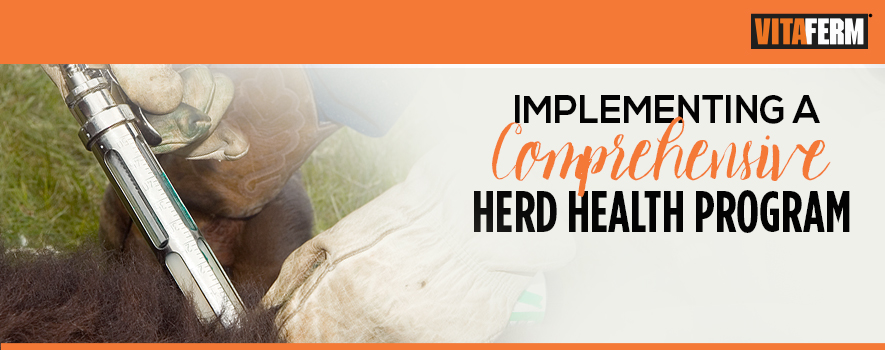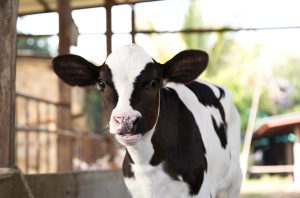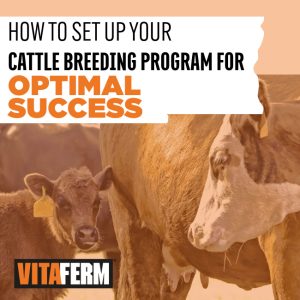If healthy calves are your goal, there are several “don’t stop” management decisions you should consider. “An ounce of prevention is worth a pound of cure” is very true when it comes to building a successful health program. Vaccination, nutrition and stress management continue to be the cornerstones of a comprehensive herd health program. Cost is always a concern, but also consider the economic consequences of not following a best management practice. Research has shown that a sick calf can reduce net returns by $200 or more.
Comprehensive herd health programs begin in the cow herd prior to calves ever being born. Proper vaccination programs stimulate the cow’s immune system to build the necessary antibodies. Those antibodies can be passed to her calf through colostrum. During the first 24 hours of life a calf’s gut is open to allow antibodies to be absorbed into the bloodstream. Ideally, calves should begin nursing within one hour of parturition and continue to nurse freely the first 24 hours. Adequate colostrum consumption will ensure both the amount and concentration of antibodies will be transferred to protect the calf.
Cows with low body condition (thin cows) will produce less quantity and lower quality colostrum. Feeding cows to the proper moderate body condition score during the last third of pregnancy is an indication that a herd is prepared nutritionally for the upcoming calving season.
In addition to preparing the cow herd for calving, producers need to establish and maintain a good health program for calves prior to and after weaning. The primary objectives of a calf health program are to increase the weight and profits on a long-term basis. Recommendations for specific practices for each herd should come from your local veterinarian. It is important to properly handle vaccines, paying attention also to label directions about timing and administration. Providing a clean, dry, comfortable environment and avoiding overcrowding the animals are also key factors.
Minimizing both animal and nutritional stress are important parts of a successful management strategy. All kinds of stress have been shown to compromise immune function. Animal stress can be environmental or social. The stress from weather extremes can be alleviated by providing proper facilities. Nutritional stress can be avoided by providing diets that are nutritionally balanced and encourage appetite. By feeding Gain SmartTM, products manufactured by BioZyme® Inc., Amaferm®, an effective prebiotic, is going to be included in the diet. Amaferm research has shown that it consistently promotes superior appetites, increased feed conversions, diet digestibility and weight gains during the first weeks following weaning or receiving.
VitaFerm® mineral mixes include the Amaferm advantage and are formulated for all stages of production. Minerals and vitamins are vital for immune response, reproductive performance and growth. Whenever cows or calves are not provided adequate nutrients to meet their requirements they will experience nutritional stress. Nutrient requirements change with age, stage of production and weight, therefore, diets should be adjusted to compensate for these changes. VitaFerm and Gain Smart mineral products have been formulated specifically to meet and exceed the nutrient requirements of cattle.
You are the most important component of an effective program. Continue to look for opportunities to fine-tune your herd health program. A good program is going to include more than vaccines, dewormers and treatment strategies. Preventive management practices can save money through reducing treatment costs, and will ultimately lead to increased profits through good stewardship.



